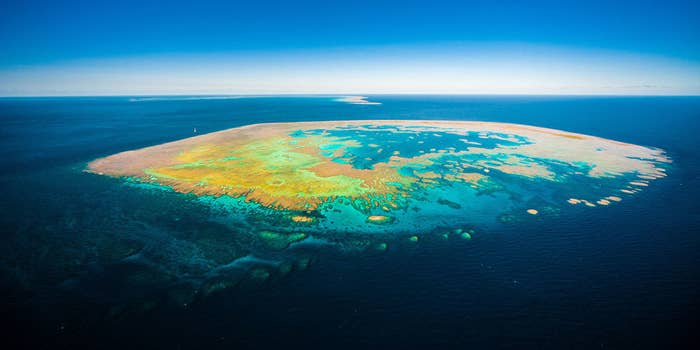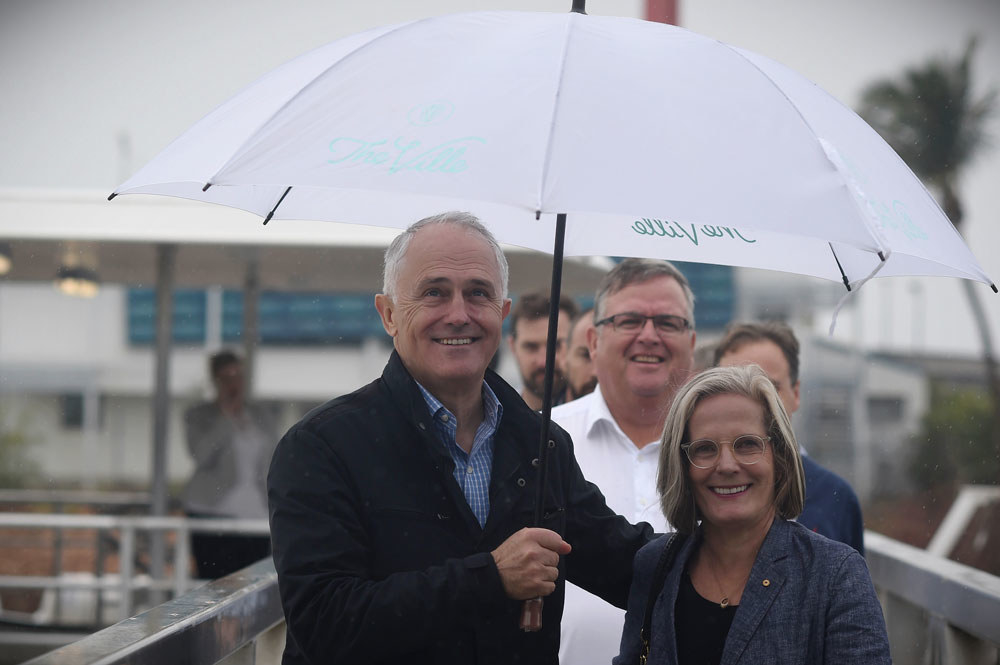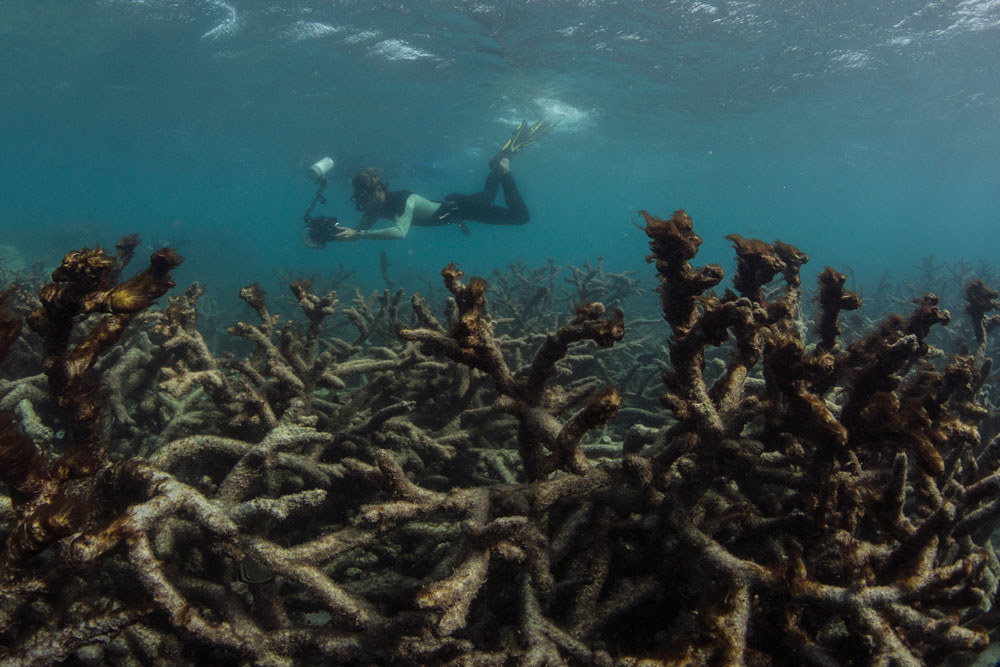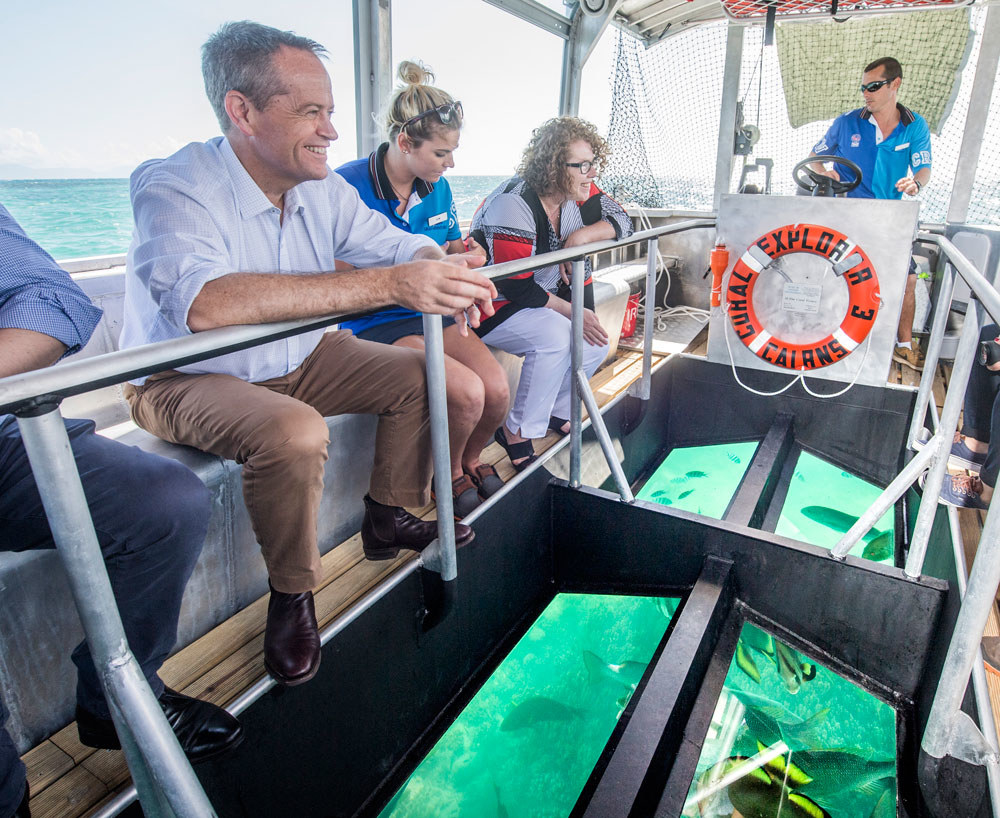Scientists warn that Australia is at a tipping point when it comes to saving the Great Barrier Reef, and that neither major party fighting for victory at the upcoming federal election has fully grasped the need for immediate action.

As the two major parties criss-cross the country, stumping for votes ahead of the 2 July election, more and more attention is being focused on the reef, which is in the midst of the greatest environmental crisis in its recorded history.
Late last month it was the Labor opposition pledging $500 million over five years, including $377 million in new funding, towards the reef, mostly for water quality measures, reef management, and research and development.
Not to be outdone, prime minister Malcolm Turnbull last weekend travelled to the reef for a second time during the campaign to match Labor's effort, promising that a re-elected Coalition government would spend $1 billion over 10 years in an effort to save the reef.
The money will come from the Clean Energy Finance Corporation – a body the government has twice tried and failed to abolish – and will be for spending on similar measures: projects to fix water quality and reduce sediment runoff near the reef, investment in clean energy, and money to fight the killer crown-of-thorns starfish.
But scientists say both major parties are ignoring the elephant in the room: climate change.

Amanda McKenzie, the CEO of the Climate Council, an independent not-for-profit dedicated to fighting climate change, recently travelled to the reef to see the damage for herself and was stunned by what she saw.
"We were taken to a place that was 100% alive two months ago," she told BuzzFeed News. "So we didn’t go to a damaged location, we went to a place where we knew we’d get an accurate sense of how bad the impacts have been.
"When we got into the water, what really struck me was that there weren’t many fish. I’ve dived on the reef many times and that was a bit of a surprise.
"The second thing I noticed was that there are large swaths of bleached coral … but also white coral that’s now covered in the dark brown algae. I saw about 40% of it covered in a thick brown algae, 40% was [bleached] white, and the rest of it, to my untrained eye, seemed OK."
McKenzie says any serious policy designed to save the reef must include an end to coal mining in Australia.

She argues that although both parties talk about water quality and reef management, without proper action on climate change, it will all be for nought.
"The biggest disconnect in Australian politics is a climate change policy that doesn’t have a plan to phase out coal rapidly," she said.
McKenzie says the government's $1 billion promise is a start, but new money is needed for any action to be worthwhile.
"It’s good that the government now sees the reef as being front and centre and acknowledges that climate change is one of the key damaging factors for the reef, and that water quality alone can’t solve the climate change issue."
"But unfortunately it’s not new money that’s being allocated – it’s coming away from other renewable energy projects."
Professor Ove Hoegh-Guldberg, a coral reef expert from the University of Queensland and the director of the Global Change Institute, warns that the upcoming election is "critical" if we are to save the reef.
"We are seeing a massive degradation of the reef through local coastal issues, but also, the underlying climate threat to the reef has put us right at the moment of truth here," he told BuzzFeed News.
"We have to step up, or lose the reef. I think that’s very clear from the science. This is a very real scientific position."
Hoegh-Guldberg warns that a few dollars redirected from other programs will not save the reef. What's needed, he says, is action on local issues like water quality and sediment runoff, as well as global action to halt climate change.
"We need to stabilise the climate as quickly as possible. That’s the urgent, deep action – the decarbonisation of Australia within 20 to 30 years. We’ve got to then beef up dealing with these local issues, which will also destroy the reef if we don’t address the two together.
"Because we might deal with the climate issue and not have reefs at the end of the day because they got killed by pollution. So you can’t ignore either issue."
Both McKenzie and Hoegh-Guldberg say that while the pledges of the major parties are a good start, neither side has come close to doing enough to save the reef.

"We have no time left," Hoegh-Guldberg said. "Any delay in decarbonising will result in massive impacts on reefs today. Given [the reef's] value to us from an inspirational point of view, from an economic point of view, from a social point of view, we have to act now."

